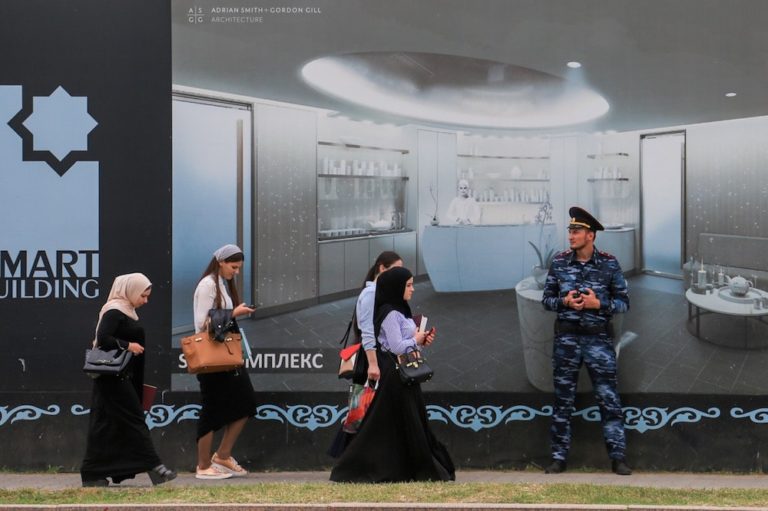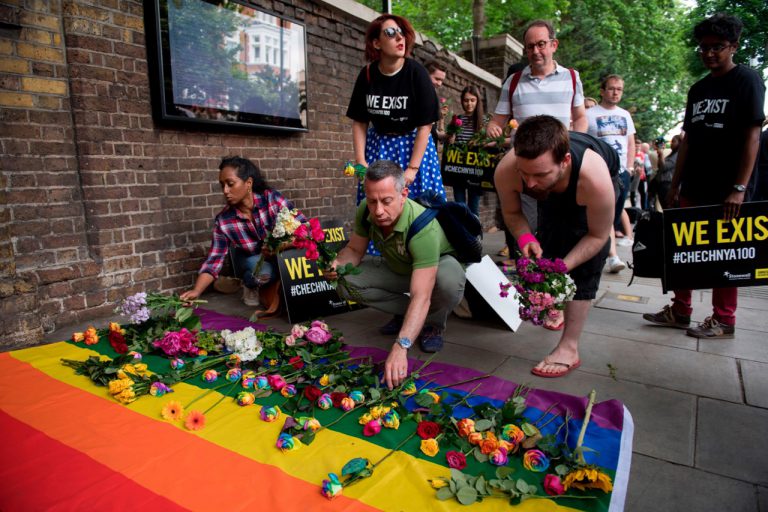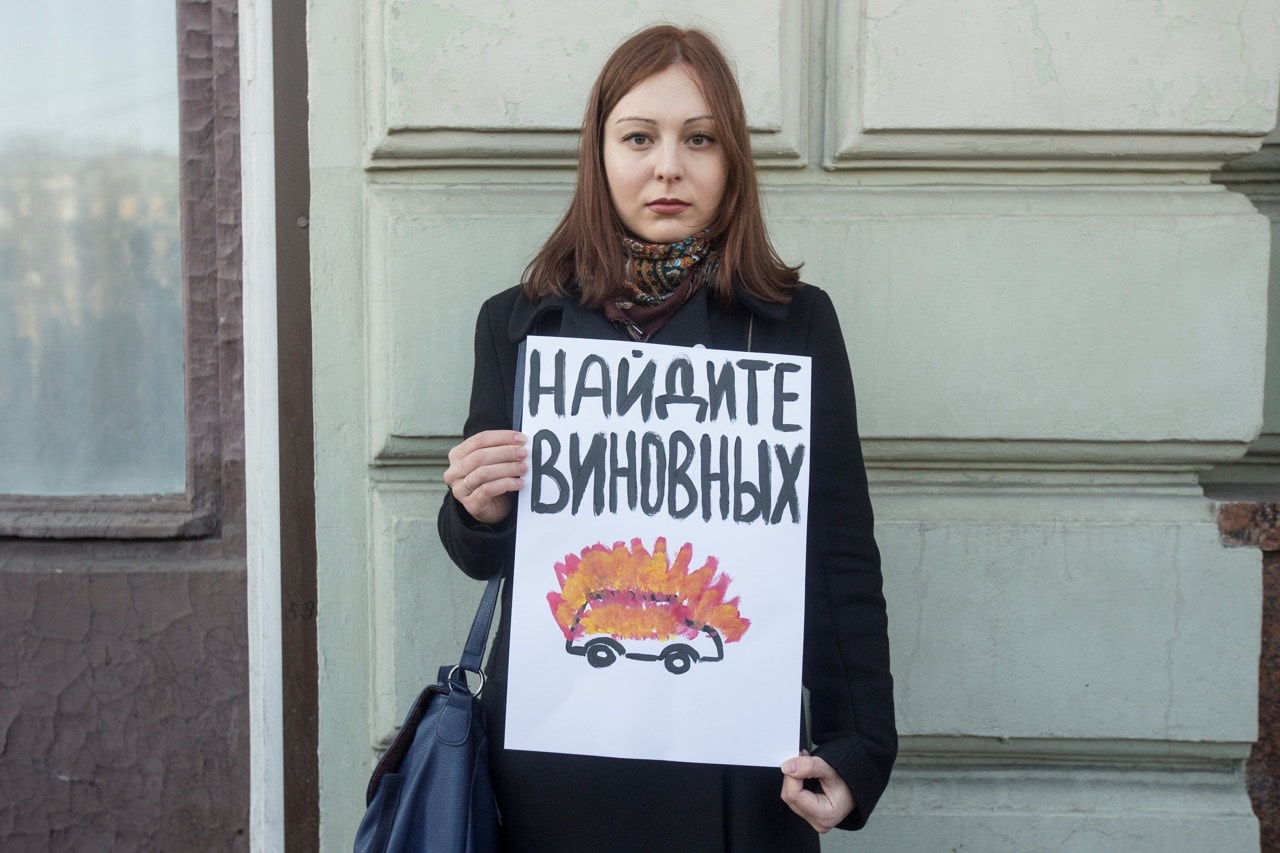(RSF/IFEX) – The following is a 26 June 2000 RSF press release: In Chechnya, Russia continues to violate the European Convention on Human Rights The war in the Chechen Republic has now been going on for nearly nine months, and Russia has satisfied none of the requirements set by the Parliamentary Assembly of the Council […]
(RSF/IFEX) – The following is a 26 June 2000 RSF press release:
In Chechnya, Russia continues to violate the European Convention on Human
Rights
The war in the Chechen Republic has now been going on for nearly nine months, and Russia has satisfied none of the requirements set by the Parliamentary Assembly of the Council of Europe in its Resolution 1201 of November 1999 and its recommendations 1444 (January 2000) and 1456 (April 2000).
The Russian government still refuses to engage in a political dialogue with the elected Chechen authorities or to declare a cease-fire. On June 8, 2000, without the consent of the Duma, President Vladimir Putin installed a direct presidential administration of indeterminate duration. Non-governmental organizations (NGO’s) and inter-governmental organizations have confirmed the massive, generalized and systematic character of human rights violations and violations of international humanitarian law perpetrated against the civilian population of Chechnya in recent months. Russian forces are still committing gross human rights violations, as attested to by recent direct witness accounts gathered by national and international NGO’s, such as Memorial. Any passage through a checkpoint is an occasion for extortion or kidnapping, while “cleansing” operations are accompanied by
arbitrary arrests. Torture and ill-treatment are still practiced in the filtration camps. The south and east of Chechnya are still subject to massive bombing. More than two hundred thousand refugees are registered in the neighboring republic of Ingushetia. Hundreds of thousands of people living in Chechnya are living in a devastated country – totally destroyed as Grozny is.
Chechnya is also a lawless zone where war can rage unwitnessed. There are no longer any independent media in Chechnya, and for several months all access to the country has been restricted to those who can receive accreditation from the military forces, which is nearly impossible to obtain.
Since the beginning of the conflict in October 1999, about ten foreign journalists have been stopped and interrogated by the Russian secret services and forced to leave the combat zones. Journalist Andrey Babitsky, Russian correspondent of Radio Free Europe, was arrested on January 25, 2000, and held in a filtration camp. He is still under house arrest though he was never sentenced. Since 1997, at least 14 representatives of the press have died in the North Caucasus, considered to be one of the most dangerous regions for journalists. The French photographer Brice Fleutiaux was detained as a hostage for more than eight months. His release on June 12, 2000, was the subject of a carefully planned media campaign by Russian authorities, who declared that his kidnapping was a “warning to all journalists wanting to enter Chechnya without military authorization”.
Throughout the country, the Russian authorities have stepped up measures of intimidation designed to silence any discordant voices covering the war. On March 15, Russian media were forbidden to open their transmission to Chechen leaders. In May, the government threatened to suspend any media which was hostile to Russian interests and to draw up a new law limiting “abuses of freedom of the press”. On May 11, the fiscal police searched the headquarters of the opposition group Media-Most in Moscow. A month later, the group’s owner,Vladimir Gussinsky, was arrested and charged with fraud.
Furthermore, the lack of concrete results by those Russian institutions tasked with protecting human rights in Chechnya, whose creation had been hailed by the international community as a step forward, can only be deplored. First, there is the Duma Commission and the nomination of Vladimir Kalamanov as Special Representative of the President of the Russian Federation in February 2000. He publicly questioned the conclusions of the Human Rights organizations, accusing them of not using professional witnesses, and calling their demands “hysterical”.
We applaud the nomination of experts from the Council of Europe to Vladimir Kalamanov’s office, but they will be hard put to restore the people’s confidence in that institution, and we can only wonder how well they will be able to exercise their mandate. As for the military prosecutor charged with investigating the army’s behavior, only one case out of the 72 investigated so far concerns murder. One may well question these investigators’ margin of action, being as they are under the orders of a chief military prosecutor who has boldly declared that, the conclusions of international inquiries notwithstanding, the Russian Army had nothing to do with the massacres in the
village of Aldi (a Grozny suburb), in which more than 80 people were killed on February
5, 2000.
Moreover, the Special Rapporteurs of the UN Commission on Human Rights, including most prominently the Special Reporter on Torture and the Reporter on extrajudiciary, summary or arbitrary executions, asked permission to visit the territory of Chechnya in conformity with the resolution adopted by the Commission in April 2000. They were denied permission at the time “for security reasons”.
In this context, the refusal by the Ministerial Committee of the Council of Europe, on May 10 and 11, to instigate the procedures prescribed by its statutes and the European Convention on Human Rights, appears more and more as a clear sign of resignation on the part of the European states. And yet the primary mission of the Council of Europe is the protection of human rights and fundamental liberties and the promotion of the rule of law. Crimes against Humanity have been and continue to be perpetrated by Russian forces on Chechen territory. The Russian authorities’ promises concerning justice seem in every way identical to those which were formulated during the first Chechen war, which never resulted in any conviction.
In view of the persistence of the violations of human rights in Chechnya, we ask the Ministerial Committee of the Council of Europe – which currently has a mission in Russia – to comply without delay with the resolution adopted by the Assembly on April 14, 2000, and to immediately suspend Russia from the common institutions, as long as the conditions for the full respect of the European Convention on Human Rights do not exist.
We also ask the member states to initiate an interstate request against Russia before the European Court of Human Rights for its failure to comply with the European Convention and its protocols.
We further ask the members of the Parliamentary Assembly of the European Council, assembled from June 26 to 30, 2000, to continue to use all means at their disposal to ask the Ministerial Committee to adopt a position in conformity with its recommendations.
Reporters sans frontières
FIDH
Comité Tchétchénie


